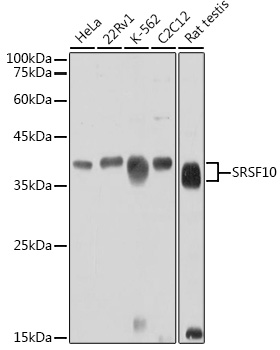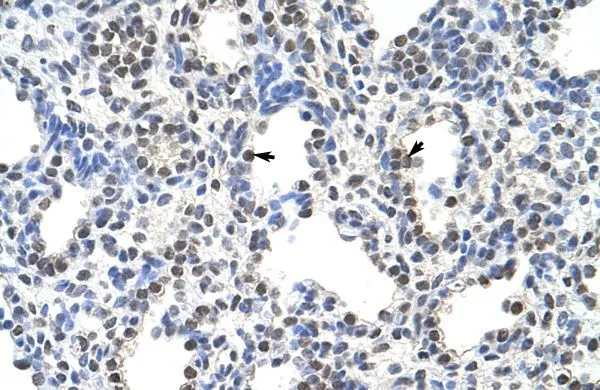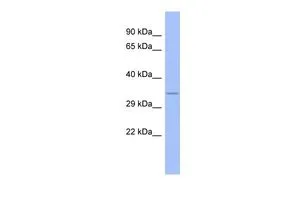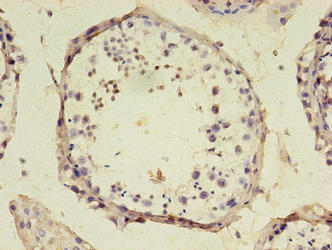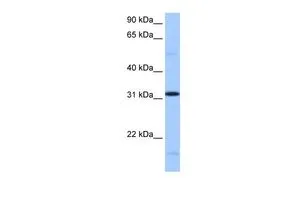
WB analysis of human liver tissue using GTX47231 FUSIP1 antibody at 0.2-1μg/ml.
FUSIP1 antibody, C-term
GTX47231
ApplicationsWestern Blot
Product group Antibodies
ReactivityHuman
TargetSRSF10
Overview
- SupplierGeneTex
- Product NameFUSIP1 antibody, C-term
- Delivery Days Customer9
- Application Supplier NoteWB: 0.2-2.5 ug/ml. *Optimal dilutions/concentrations should be determined by the researcher.Not tested in other applications.
- ApplicationsWestern Blot
- CertificationResearch Use Only
- ClonalityPolyclonal
- Concentration0.5-1 mg/ml
- ConjugateUnconjugated
- Gene ID10772
- Target nameSRSF10
- Target descriptionserine and arginine rich splicing factor 10
- Target synonymsFUSIP1, FUSIP2, NSSR, PPP1R149, SFRS13, SFRS13A, SRp38, SRrp40, TASR, TASR1, TASR2, serine/arginine-rich splicing factor 10, 40 kDa SR-repressor protein, FUS interacting protein (serine-arginine rich) 1, FUS-interacting protein (serine-arginine rich) 2, SR splicing factor 10, TLS-associated SR protein, TLS-associated protein TASR, TLS-associated protein with SR repeats, TLS-associated protein with Ser-Arg repeats, TLS-associated serine-arginine protein 1, TLS-associated serine-arginine protein 2, neural-salient SR protein, protein phosphatase 1, regulatory subunit 149, serine-arginine repressor protein (40 kDa), splicing factor SRp38, splicing factor, arginine/serine-rich 13, splicing factor, arginine/serine-rich 13A
- HostRabbit
- IsotypeIgG
- Protein IDO75494
- Protein NameSerine/arginine-rich splicing factor 10
- Scientific DescriptionThis gene product is a member of the serine-arginine (SR) family of proteins, which are involved in constitutive and regulated RNA splicing. Members of this family are characterized by N-terminal RNP1 and RNP2 motifs, which are required for binding to RNA, and multiple C-terminal SR/RS repeats, which are important in mediating association with other cellular proteins. This protein interacts with the oncoprotein TLS, and abrogates the influence of TLS on adenovirus E1A pre-mRNA splicing. This gene has pseudogenes on chromosomes 4, 9, 14, 18, and 20. Alternative splicing results in multiple transcript variants. [provided by RefSeq, Jul 2014]
- ReactivityHuman
- Storage Instruction-20°C or -80°C,2°C to 8°C
- UNSPSC12352203



